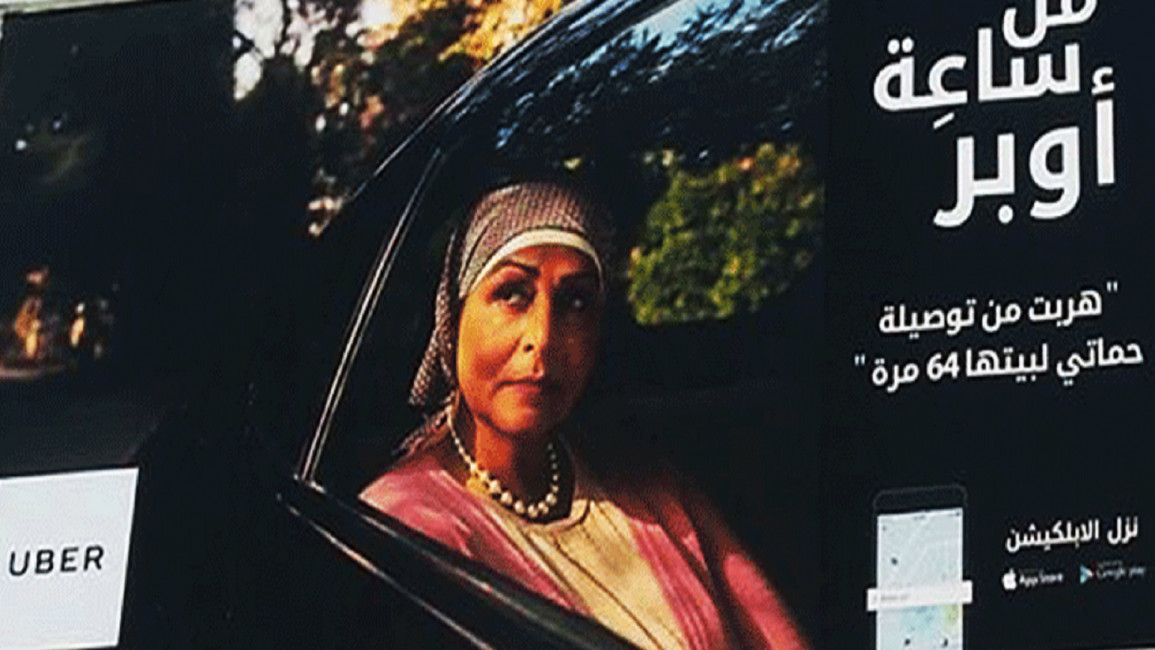
Uber offends Egyptian mothers-in-law with 'insulting ad'
Car-hailing application Uber was ordered on Saturday to take down some of its advertising billboards in Egypt for "violating society's customs and traditions", the country's top consumer protection authority said in a statement.
The controversial Uber ad showed a picture of an older woman in the backseat of a car, with the caption reading "[thanks to Uber], I was spared 64 times from driving my mother-in-law home."
According to Atef Yacoub, the head of Egypt's Consumer Protection Agency (CPA), the ad violated Article 2 of the consumer protection law, which perserves consumers' right to personal dignity, respect of their religion and Egyptian society's traditions and customs.
CPA's decision followed a social media campaign by outraged Egyptians, who found the ad offensive to mothers-in-law and older family members in general, arguing that offering them a ride home was common courtesy and far from being a burden to be mocked in an ad campaign.
One Facebook user said the ad "spreads hate and passiveness".
"A mother-in-law is a mother who should be respected and served, and driving her home is an honour," she said earlier this month when the ad first appeared.
Twitter Post
|
"You bought a massive ad space to teach people how to be wicked, low, negligent and hateful."
In response, Uber Egypt apologised and agreed to discontinue this particular campaign, removing its banners and billboards from streets and even ads on social media.
"We apologise if one of our campaign billboards offended anyone - it was not our intention. We respect and appreciate all feedback and will act accordingly," the company said in an emailed statement.
The application has very rapidly become popular in Cairo, a city of 20 million people with almost-constant traffic jams.
Egyptian clients say they prefer the dependability of the app, complaining that normal taxi drivers often tamper with their meters or pretend the meter is broken in order to overcharge them.
They also appreciate the safety provided by the app, especially for female passengers at night who fear being sexually harassed by drivers.




